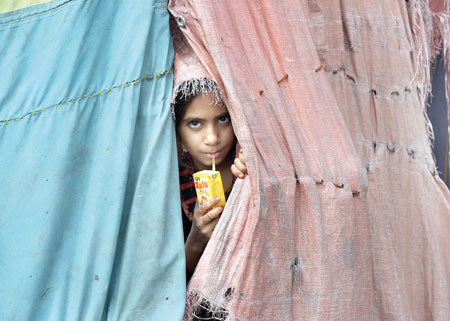Pakistan is facing new inflows of asylum seekers from neighboring Afghanistan, following the Taliban’s takeover of Kabul, according to the UN refugee agency.
Speaking to Anadolu Agency on the eve of World Refugees Day, observed on June 20 every year, the spokesperson for the UN High Commissioner for Refugees (UNHCR) Pakistan, Qaiser Khan Afridi, said more than 250,000 Afghans seeking asylum have trickled into Pakistan since January 2021.
“UNHCR is aware that over 250,000 Afghans seeking asylum are reported to have arrived in Pakistan since January 2021, however, the overall number of Afghans with international protection needs is likely to be higher,” said Afridi.
“We are currently discussing with the government of Pakistan the way forward on registration and documentation of asylum-seekers, predominantly from Afghanistan,” he said.Hundreds of thousands of Afghans fled to Pakistan and Iran since the fall of Kabul to the Taliban last August.
Many, who worked or associated with the previous regime, left the country, even before the capture of Kabul fearing a backlash from the hard-line group, with others finding it an opportunity to emigrate to the US or Europe.
The Wall Street Journal reported earlier this week that many top officials in the US-backed previous Afghan government had started purchasing expensive properties in the US and other countries in the final years of the war, which ended in an unexpected surrender of the Afghan National Army.
Last week, the federal cabinet approved a policy under which, Islamabad will issue transit visas to the Afghan asylum seekers to enter the country legally to complete paperwork for further international travel.
Much expectedly, there has been no increase in the number of Afghan refugees returning to their homeland after the Taliban’s takeover, said the UNHCR.
Afridi said only 850 refugees (185 families) have returned to the war-torn country since the beginning of 2022 under the commission’s voluntary repatriation program. The figure, he added, is slightly higher compared to repatriation during the same period last year.
“Upon return, repatriated families receive a grant to support them as they rebuild their lives and communities. The UNHCR provides financial support of $250 each to the repatriating families,” he added.
Pakistan is currently hosting 1.3 million documented and almost as many undocumented Afghan refugees. Of them, a majority are residing in Khyber Pakhtunkhwa, which serves as a gateway to Afghanistan.
Balochistan and Karachi also host a large number of refugees. “UNHCR advocates that returns need to be voluntary and take place in conditions of safety, dignity and security,” said Afridi.
Saleem Khan, the chief commissioner for Afghan refugees, said the repatriation process remained sluggish because of coronavirus-related restrictions in the past two years, aside from economic and political developments in Afghanistan.
“The process has seen a kind of resumption over the past one week but it’s premature to predict the future trend. It will take another couple of months to determine that,” he told Anadolu Agency.
Hunched on plastic chairs outside a cafe and enjoying green tea at a refugee camp in Karachi, a group of Afghan youths had no plans to return to their homeland.
Located on the northern outskirts of most populous city, the run-down locality with limited access to health care and basic sanitation is home to nearly 250,000 refugees who were forced to flee due to a lingering conflict.
Karachi is home to more than 300,000 Afghan refugees, most of whom work as laborers or own small shops in Pashtun-dominated areas.—Anadolu Agency










